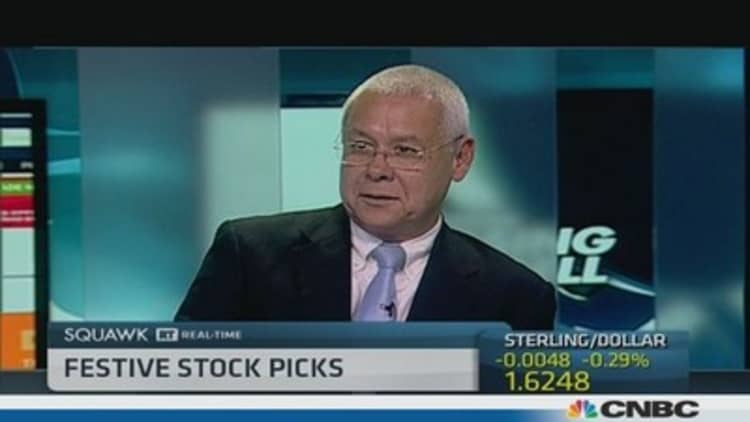China's interbank lending rates jumped on Wednesday on worries over an impending withdrawal of liquidity, even as the central bank has held off injecting funds through open market operations.
China's benchmark interbank lending rate rose to its highest since the cash crunch in late June that roiled global markets. Traders said large banks, which are typically the main suppliers of liquidity to the market, were not offering loans.
(Read more: Bad loans remain most challenging for China banks)
The seven-day bond repurchase rate hit 6.11 percent on a weighted-average basis, up from 4.78 percent on Tuesday and the highest level since June 27.
"Supply is especially small, at every price. Even adding 100 basis points (to yesterday's price), competition is fierce. I'll have to continue borrowing this afternoon," said a money market trader at a commercial bank in east China.

A severe cash crunch in late June sent rates on individual repo loans to as high as 30 percent, with panic spilling over to Chinese and global equity markets. The Shanghai Composite Index was up 0.2 percent in early afternoon trade on Wednesday.
Money market traders say the maturity of 40 billion yuan worth of fiscal deposits on Thursday has reduced funds available for lending. In addition, the People's Bank of China has declined to inject funds into the banking system for four consecutive regularly scheduled sessions going back to Dec. 5, providing no relief to the market.
In the swaps market, one-year interest rate swaps based on the seven-day repo rate, which typically reflect liquidity conditions, were at 4.88 percent, the highest level since June 20.
(Read more: Why the huge write-off by China banks is positive)
The Ministry of Finance periodically auctions government funds to commercial banks, who bid for the right to hold the cash. These operations add to interbank liquidity until the deposits mature and flow back into the central bank, withdrawing liquidity.
But the ministry has already completed its final deposit auction for 2013, meaning that no new liquidity will enter the market via this channel.
Traders are focused on whether the central bank will inject cash via reverse repos at Thursday's regularly scheduled open market operations.
"Tomorrow the pressure will be heavy. If there are no reverse repos, it will be bad," said a money trader in Shanghai.
(Read more: China money market rates spike, but don't panic)
Unlike in June, the rise in rates on Wednesday was largely confined to the seven-day tenor.
The overnight repo rate was at 3.66 percent on Wednesday, little changed from 3.60 percent on Tuesday. The 14-day repo rate averaged 5.49 percent, up from 5.32 percent on Tuesday, but below the 5.88 percent average on Dec. 3.

